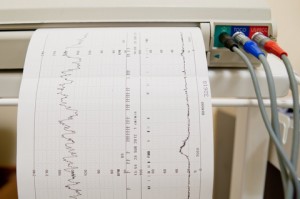Obesity and Substance Abuse
 Did you know that, according to the National Institutes of Health, obesity is simply an energy imbalance? According to the experts, the human body needs energy to perform basic functions. The more intense the functions we perform, such as running a marathon, the more energy our body needs. When we supply our body with enough energy to run a marathon, but we don’t actually run the marathon, our bodies gain weight. Sounds simple, doesn’t it? For some individuals, however, it isn’t simple at all.
Did you know that, according to the National Institutes of Health, obesity is simply an energy imbalance? According to the experts, the human body needs energy to perform basic functions. The more intense the functions we perform, such as running a marathon, the more energy our body needs. When we supply our body with enough energy to run a marathon, but we don’t actually run the marathon, our bodies gain weight. Sounds simple, doesn’t it? For some individuals, however, it isn’t simple at all.
There are many factors that contribute to whether or not someone will be predisposed to obesity. These factors might include quality of our diet, the amount of exercise we take part in, the genetic history of our family, and even our emotions.
Binge Eating and Substance Abuse
Another factor that can be linked to obesity is the presence of an eating disorder. One eating disorder in particular, binge eating, can result in significant weight gain. While the exact cause of binge eating disorder is not known, the presence of certain psychological issues can certainly make it more likely to develop.
According to information published by Vanderbilt University, individuals who suffer from substance abuse – a diagnosable condition related to addiction – will often suffer from an eating disorder as well. The exact reason that an individual might suffer from both of these conditions is not fully understood.
There are several theories however, including:
- The development of one disorder predisposes the individual to the second
- A separate condition, such as depression or anxiety, is responsible for the development of both binge eating disorder and substance abuse
- The risk factors for both conditions are similar, therefore increasing the likelihood that either or both conditions can develop
- The conditions are linked to a shared source of trauma or related episode
It is important to remember that if both substance abuse and a binge eating disorder that results in obesity are present, an individual must be treated for both conditions at the same time in order for the treatment to be fully effective. In addition to treatment for the eating disorder and the substance abuse, steps should be taken to mitigate the health risks due to the obesity.
Health Risks of Obesity
 The Weight-Control Information Network – a service of the National Institute of Diabetes and Digestive and Kidney Diseases – lists several serious conditions that can result from obesity. These conditions range from arthritis and problems that can occur during pregnancy to heart disease, high blood pressure, and even cancer.
The Weight-Control Information Network – a service of the National Institute of Diabetes and Digestive and Kidney Diseases – lists several serious conditions that can result from obesity. These conditions range from arthritis and problems that can occur during pregnancy to heart disease, high blood pressure, and even cancer.
Type 2 diabetes is another risk associated with obesity. While not everyone who is obese develops this condition, 80 percent of people who suffer from type 2 diabetes are drastically overweight. There is currently no cure for this disease; however, controlling one’s weight can help to control the symptoms associated with the disease. Controlling one’s weight prior to the onset of type 2 diabetes may prevent it from developing as well.
High blood pressure is determined by the pressure of blood on the arteries. Because an individual who suffers from obesity is larger, his or her heart must pump harder in order for the blood to keep flowing, which may increase this pressure against the arteries. While high blood pressure often has very few symptoms, it can lead to serious medical problems including stroke.
The link between certain conditions related to obesity and substance abuse can be quite dangerous. According to an article published in the Daily Mail, the use and abuse of cocaine, for instance, can raise blood pressure. Even in an otherwise healthy person, cocaine increases the risk of heart attack because of the physical effects of the drug. When coupled with someone who may suffer from hypertension due to obesity, the risk of a life-threatening incident is naturally increased. In fact, according to the latest information from the Substance Abuse and Mental Health Services Administration, cocaine abuse was responsible for more emergency room visits than any other type of drug for the year 2010.
Getting Help for Substance Abuse
If you or someone you love is struggling with substance abuse, it is never too soon to get the help you need to begin the process of recovery. According to the National Institute on Drug Abuse, there are certain aspects to treatment that can make it more effective. Before you make a decision about which treatment program may be right for you, ask yourself the following questions to make sure you’re receiving the best care possible:
- Does the treatment center take steps to determine any and all co-occurring disorders that may be present, including obesity or other physical problems that may need attention?
- Will the treatment center develop a program that is specific to your needs?
- Does the treatment center have the experience, ability and compassion to adjust your treatment program when it is necessary?
- Does the treatment center attend to your spiritual and other needs in an effort to create the balance and coping skills you will need when the treatment program has been satisfied?
- Does the treatment program include evidence-based therapeutic methods that have been proven effective for the treatment of substance abuse and addiction?
- Will the treatment center provide services and a program that will be of adequate length for your needs, rather than a certain number of days or weeks to which you must conform?
Each of the elements involved in a truly effective treatment program is like a spoke in a wheel. In order for the wheel of your life to turn in a productive manner, each spoke must be firmly in place.
Learning to Live a Healthy Lifestyle
The singular goal of any effective treatment program should be the overall health of the recovering addict. When the individual seeking recovery also suffers from obesity, the plan may include nutritional counseling and an exercise program in order to bring the physical health issues into the same control as the substance abuse problems.
There are many aspects to living a healthy lifestyle that have to do with how we see ourselves as whole people. By engaging in holistic activities, it is possible to achieve the balance you need to regain control of every aspect of your existence. For example, learning to control the stress we endure might reduce the self-destructive habits that have developed relating to weight gain and unhealthy eating. There are several ways to learn how to control stress levels. Some individuals prefer yoga, which combines meditation and physical activity to keep the body and spirit healthy. Others may choose to engage in meditation alone, focusing their attention on chants, known as mantras, or their own breathing as a means to reduce the amount of stress they have in their lives. Still others may find therapeutic massage a viable way to prevent stress from building up in their bodies and their minds. The important thing is to find what works for you so when you leave the treatment center, you can use these tools to increase your ability to withstand the challenges that come with early recovery.
At The Orchid, we are determined and dedicated to your healing process. Healing is a personal and profound experience that often comes with the assistance of a community that understands what you’re going through and how to help you move forward. To find out more about how living in sobriety and having complete and total control of your life can be achieved, please contact us.
